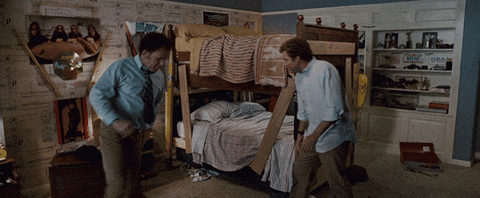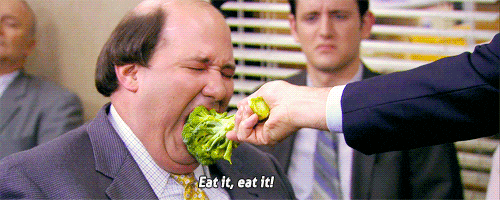I think I have depression. But what does that mean?
Depression is tricky and affects most people at some point in their life. The National Institute of Mental Health reports that in 2017, 17.3 million Americans had endured at least one depressive episode. The prevalence rate for MDD is highest among ages 18-25 as they represented 13.1% of all individuals diagnosed. Meaning, this generation is STRESSED. However, what exactly makes one be diagnosed with depression?
Above, is the criteria that one must meet to be diagnosed with Major Depressive Disorder (MDD). This information can be found in the DSM-5 along with the criteria for other mental health disorders. This is important to know because this is what psychiatrists, therapists, and counselors look at when they see you. Here’s the crappy thing, there is more than one form of depression and depression manifests differently from person to person.
Since MDD is the most common, that is what I will focus on. The media is still romanticizing the version of depression where people are sad, lying in bed, and not leaving the house. Let’s look at the other major criteria for one to have depression, “diminished interest or pleasure in doing things”/lack of motivation. You DO NOT have to be sad/or be hopeless to be diagnosed with MDD and most people forget that there is a second “major criteria.” Have you ever felt just blah and found it hard to do or enjoy the things you used to? Do you feel unmotivated all the time and find it hard to complete tasks or go out? If so, that meets criteria two.
Depression can show up as irritability or anger in some as well. As someone who has gone through a few depressive episodes, I was very angry and irritable all the time. I was upset that I was feeling this way. I was upset that I allowed myself to get to this point. More importantly, I was pissed because I wanted to do something about it, but the lack of motivation was a hard beast to battle. I was short with everyone, my house was in disarray, exploded on my partner multiple times, had crying spells due to the anger, and ultimately felt crappy. It was a challenging fight, to say the least. Depression can look like excessive eating, not eating at all, emotional spending, radical changes in appearance, complete isolation, memory loss, overexertion of oneself to be social so friends don’t notice anything is wrong, feelings of physical pain that you can’t seem to pinpoint the location, and insomnia/hypersomnia. Depression even looks like handling all responsibilities, going to work and such and never missing a beat. The point is, depression does not have just one face and it is not always easy to identify. You can beat depression too, below are a few ways how.
10 Coping skills (These are in no particular order):
1. Get out of the house and do something you used to enjoy/Scheduling Small activities
I think this is the most obvious, however, the hardest coping skill because you are grappling with the depression and lack of motivation the most. Nine times out of ten, once you get out of the house and start doing something that “sparks joy” you will start to feel better quickly. Don’t sit and mull in the depression, this will in turn cause symptoms to worsen.
As depression lowers our inhibitions, it can be difficult to even get out of the house to do the first coping skill. One of the ways to get us to this step is through behavioral activation which is simply replacing unwanted behaviors with positive ones. Start small. Instead of sleeping in, set a time for you to wake in the morning and make some sort of breakfast. Leave some time for you to rebound. Then in the afternoon plan something positive like a short walk or calling a friend. In the evening, do something you used to enjoy like drawing for a couple of minutes, preparing a small dinner, or preparing for the next day. Once we get into a routine, the small activities become less challenging and from there you must increase the difficulty level. For an example, instead of just calling a friend, you may schedule a time to go out with said friend. Please see in "Additional Resources" for materials on behavioral activation.
2. Open the blinds and let sunshine in! If there is no sun due to season or weather, take vitamin D!
Vitamin D and sunshine have been shown to increase mood. Plus, there’s no better feeling than the suns warmth on your skin.
3. Call a friend!
This can be as hard as number one because you may feel like you don’t want to be a burden to someone. Discuss and designate a specific person(s) as your vent buddy. Make sure that you are comfortable and safe discussing things with this human. I would advise having at least 2-3 vent buddies, if possible so that not too much weight is put on one person. As a rule of thumb, always ask the person if now is a good time to talk, if they are at emotional capacity for the day, or if it’s ok to talk about some deep things. For this to work, both parties must be considerate of the other!
4. Listen to positive upbeat music.
Music can drastically change one’s mood. Listen to some that gets you up and going. Or, revisit an old song/playlist that used to get you pumped as a kid. The early 2000’s music, as horrible people say it was, it definitely got you moving!
5. Practice GOOD sleep hygiene!
When depression hits, our sleep schedules are thrown off. Find a good bed time routine that works for you. Try a routine that gets you in bed at a decent time, around 10:30 PM-11:00 PM and up in the morning around 6:30 AM-7:00 AM. Sleep hygiene will be discussed further in a later blog post!
6. Practice healthy eating!
Let’s be honest, as delicious as tacos and Wendy’s is, it’s honestly the last thing you should be eating while in a depressive episode. Fatty and greasy foods will weigh you down and cause you to feel worse, and they keep you on the couch and in bed longer. This leads to obvious weight gain. Or the opposite can occur where you forget to eat. Schedule your meals. Write them down. Try your best to plan them out. This can be a struggle while you are depressed, however, having a plan in place before the onset of a depressive episode is your first line of defense! If you need help, invite a friend!
7. Journaling.
As much of a cliche this is, it’s a cliche for a reason. It works! Take a daily self-inventory. Track your moods. Learn what triggers you and how to cope/avoid them for next time. Journaling can be very informative and relaxing, you just have to take the time out to do it. Try to make it a part of your daily routine, if you can, and maintain it. You can journal using a free app such as CBT (Cognitive Behavioral Therapy) Thought Diary (available on IOS and the Google Play Store). The benefit of using this is that, 1. Your phone is probably in your hand anyways so why not. 2. This guides you through fully fleshing out your thoughts and understanding them 3. It is a part of therapy intervention, so it’s like a free therapy session for yourself! What’s better than that. Or you can use good ole’ pen and paper if that’s your thing!
8. Practice self-love.
Whew, this coping skill can be a doozy. When one’s self-esteem and self-worth is diminished, this can be a difficult task. However, the way to conquer this is to look at how POSITIVE friends and family view you rather than looking in on yourself. What would they say about you? List a few strengths you possess. Write out some positive affirmations on sticky notes and place them in places you see often and then in random places so that you find nice notes to yourself. Keep a gratitude journal. Dive into self-care and learn what you like/dislike and what makes you tick. TREAT YO SELF!
9. If you are finding that the above coping skills are impossible to do because of how you feel, it may be time to consider medications.
Anti-depressants come in different categories. Talk with a psychiatrist or your primary care provider or PCP to find out which one is best for you. Despite popular belief, anti-depressants do not make you become a “mood-zombie.” They are there to stabilize your mood. Sometimes, meds are the push people need to get them feeling better and increase functioning so that they can do the other coping skills! Meds are not the end all be all. Other work must be done too.
10. See a therapist or psychiatrist
Though you are getting free advice here, *hair flips*, it’s also beneficial to see a professional to help push you in the right direction and be your cheerleader/support person. Use Psychology Today as a starting point in your search.
TiL next time, Peace ✌






